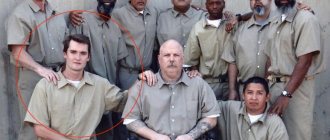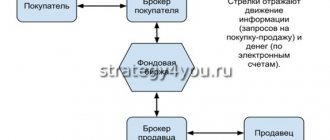What is the Silk Road?
The Silk Road is a digital black market (Darknet) platform that has been popular for hosting money laundering and illegal substance transactions using the cryptocurrency Bitcoin.
The Silk Road, considered the first darknet cryptocurrency market. It was launched in 2011 and was eventually shut down by the FBI in 2013. It was founded by Ross William Ulbricht, who is currently serving life in prison for his role in Silk Road.
Since then, several other darknet markets have emerged.
Key points
- The Silk Road is an online black market where buyers and sellers of illegal or unethical goods can transact anonymously.
- Using privacy methods such as the Tor network and cryptocurrency transactions, people were able to transact illegal substances, hacked passwords, illegal data, and other contraband.
- The FBI shut down Silk Road in 2013, and its founder, Ross Ulbricht, was sentenced to life in prison.
Silk Road: how the Amazon of the drug world was closed
Drug dealing, philosophy and high technology rarely come together. But the story of the legendary Silk Road market, which operated on the “dark web” for almost three years, is just one of these rare cases.
At the beginning of 2011, the Gawker blog wrote about a very unusual tech startup - so to speak, an underground market where illegal goods are traded, among which drugs occupy the first place. “Silk Road is like Amazon, if Amazon sold psychotropic drugs,” says the article that launched Silk Road into fame.
Silk Road perfectly follows the model of modern startups: a young private business that uses the latest technology to make the lives of its users “easier”; they gladly pay for the convenience, and this allows the inventors to become fabulously rich. Only “convenience” in this case means “buy cocaine and not get beaten and robbed,” technology means anonymous proxies and the “dark web,” wealth means a series of Bitcoin hashes, and the exit strategy for entrepreneurs in this case sounds like “don’t please.” to jail". With this, however, there was a slight misfire.
Silk Road has never published its statistics, but according to rough estimates, at the beginning of 2013, it offered about ten thousand types of products, of which 70 percent were drugs, and the rest were weapons, fake documents, counterfeit products, etc. In total, about 340 types of narcotic substances could be found on the site.
There are different estimates of how much money passed through Silk Road, but, for example, an estimate for the first half of 2012 was about $15 million per month. At the beginning of 2013, analysts estimated Silk Road's monthly turnover at $30–40 million.
Silk Road owes its existence to two things: the electronic currency Bitcoin and the distributed anonymizer Tor. As you know, Tor can hide not only the identity of site visitors, but, if necessary, the site itself: the link to it will end in .onion, and you cannot open it with a simple browser. Sites hidden in this way are often called the “darknet,” and for obvious reasons, one has to resort to these distribution channels in cases where there is something to hide.
The history of the popularity of Silk Road began around the same time when the world first learned about Bitcoin - in 2009–2011. And it was the anonymous electronic currency that made it possible to make the purchase of drugs as safe as possible.
The Gawker article details a typical use case for the site, and except for the product, it's very similar to a typical online shopping experience: “A customer wants to order a hundred micrograms of acid through an ad on Silk Road. He found a seller with a lot of positive comments and clearly competent. Then I added acid to my cart and proceeded to the payment process. Then you just need to indicate the delivery address and pay fifty bitcoins.” Note that in 2011 this amount was equal to 150 dollars, and now it is already fifteen thousand greenbacks. Buyers of that time must regret spending much more than ordinary drug lovers - but, of course, not as much as a person who once bought a pizza for ten thousand bitcoins, or three million dollars at the current exchange rate.
It turns out that another reason for the popularity of Silk Road lies in its relatively reliable rating system, which allows us to cut off a significant part of scammers. By the way, for the same purposes, the site administration requires all sellers to make a deposit before opening their virtual shop. On the one hand, this gave way to competing sites (of which there were soon a great many), but on the other hand, it supported Silk Road’s reputation as the most reliable way to stock up on illegal drugs.
So who created Silk Road? Until recently, details about the site's founders were very scarce. Some details were found out by a journalist from Forbes, who in early August 2013 contacted the chief administrator through the Silk Road forum, who called himself Dread Pirate Roberts (Dread Pirate Roberts, in honor of the character from the novel and film of the same name “The Princess Bride”). He did not reveal any details about himself, but shared some information about the site.
As it turned out, Dread Pirate Roberts is not the first owner of Silk Road, and the real creator of the market only handed over the reins to him, after which he retired with the money he had previously earned. Roberts's career turn from hacker to drug lord followed the same pattern in which former hackers sometimes become security experts at large firms: he found a vulnerability, which he notified the site owner. He, as often happens, did not want to communicate at first, but then admitted that a hole through which it was possible to find out information about customers existed and needed to be sealed.
Of course, Roberts is not running the site alone—it takes a lot of effort to keep things running smoothly. The owner of Silk Road in an interview spoke very flatteringly about the community of active users who are always ready to help with advice. Employees are also hired from the community: there have been cases when the administration posted real vacancies on the forum.
According to Roberts, one of the ongoing concerns of site administrators is the ongoing attacks. They can come both from competitors and from those who want to hit the big jackpot and take over Silk Road’s money. Moreover, we are not talking about DDoS (such attacks via Tor, if possible, are difficult), but often about zero-day exploits.
Handling bitcoins also requires caution: so that transaction chains cannot be tracked on the blockchain, their laundering (or rather, mixing) was carried out on a large scale. After this procedure, it turns out to be impossible to find out that the sellers received their bitcoins from Silk Road.
“You have already sold weapons and it seems you are going to resume the practice. Are there things you definitely won’t trade?” a Forbes reporter asks Dread Pirate Roberts. And it turns out that he has a formulated answer.
It is possible to sell weapons needed for self-defense. But weapons that are clearly intended to harm innocent people (for example, those that can be used against a crowd, or weapons of mass destruction) are prohibited on Silk Road. Trade in stolen goods, counterfeit money and other fraudulent paraphernalia, child pornography and the services of hired killers is also prohibited. Any other goods - as many as you like.
Roberts is not at all ashamed of his occupation: in his opinion, people are free to do whatever they want with their health, as long as they do not harm others. Moreover, he considers the black market he supports to be a harbinger of a future where free trade will free people from the need to obey any authority. This anarcho-libertarian movement is called "agorism" and its proponents are opposed to political participation and in favor of free economic relations. News of the rise of anonymous electronic currencies and black markets should be music to an agorist's ears.
The ideology behind Silk Road finds a certain response in society. For example, the famous science fiction writer Bruce Sterling, in the article “The Dread Pirate Nemo: the essence of Silk Road is not drugs,” compares the owner of Silk Road with Captain Nemo - a brilliant inventor and at the same time a renegade fighting the colonial regime. “I wouldn’t pay attention to this whole story if it was just another fellow Texan of mine who sold a lot of drugs. But no: people like the Dread Pirate Roberts aren't half as satisfied with the drug trade. The Dread Pirate Roberts is a dreamer of Juulverne proportions,” writes Sterling.
Since states are not going to surrender to the mercy of anarchists in the near future and the sale of drugs is still prohibited, the police have long been monitoring the activities of Silk Road and looking for ways to get to both the dealers and the administration.
The first person to be arrested for purchasing on Silk Road was an Australian who ordered cocaine and MDMA to be delivered by mail in February 2013. The package was intercepted, illegal substances were seized, and the house and computer were searched. However, these actions did not give any access to the sellers.
The next one was a supplier with a long list of drugs that he dispensed, as you might guess, without the need to present a prescription. His arrest, however, did not surprise anyone: judging by messages on the Silk Road forum, the seller was too careless and calmly disclosed his home address to all buyers - even despite the fact that they pointed out the mistake to him.
This story, in addition to its general instructiveness, is notable for the fact that the US Drug Enforcement Administration then seized bitcoins for the first time - the dealer had eleven of them. No one still knows how exactly the police seize bitcoins.
The real news broke on October 2, 2013. Then the FBI managed to take over the Silk Road servers and shut down the market. As it later became known, the servers were located in Iceland, Latvia, Romania and one in the USA.
How the FBI managed to determine the location of the servers is not reported. However, data copied from an Icelandic server by the Reykjavik police allowed agents to go even further. After studying the archive of correspondence, they de-anonymized (and then arrested) the person who was considered the owner of Silk Road. At the same time, his savings in bitcoins, equivalent to $28.5 million, were also seized.
Until the court considers the case, it would be incorrect to assert that the arrested twenty-nine-year-old Ross Ulbricht is the legendary Dread Pirate Roberts. And yet, the police had a lot of strong evidence in their hands.
Ross Ulbricht
We recommend reading:
Xakep #273. Log4Hell
- Contents of the issue
- Subscription to "Hacker"
At Ulbricht's home, police found a fake driver's license with a photograph and the correct date of birth of the suspect, but a different last name. The unsealed correspondence mentioned just such a document: Ulbricht asked his colleagues to get him a fake ID that he could present when renting servers.
Other clues that emerged as police took a closer look at Ulbricht pointed to a connection between Ross Ulbricht and the Dread Pirate Roberts. Thus, the owner of Silk Road was once looking for a Bitcoin specialist and left the address of Ulbricht’s Gmail account in a message.
Ulbricht's libertarian beliefs and lifestyle also confirm the FBI's assumption. He stayed with a friend for a long time in San Francisco (where, by the way, he was 500 meters from the cafe, from whose IP the Dread Pirate Roberts account was accessed), then rented a room in another house. His neighbors told police that “Josh” (as Ross Ulbricht called himself) was always sitting in his room on the computer.
In his LinkedIn profile, Ulbricht says that since graduating from university, he has been developing “a simulation that would allow people to experience what it is like to live in a world without the coercion of governments and institutions.” Silk Road fits this description quite well.
The FBI report reveals interesting new details regarding Silk Road. It turned out that during its existence, the site sold goods worth approximately $1.2 billion and brought its owners about $80 million (the rate was taken at approximately $130 to one bitcoin - by the time this article was written, the figure had doubled). Silk Road's salaried administrators received salaries ranging from $1,000 to $2,000 per week. But the most interesting thing was found in the Dread Pirate's correspondence.
The first of the episodes, which showed Roberts (and, according to the FBI, Ulbricht) in a less than favorable light, lasted from January to March 2013. An FBI agent made a successful attempt to infiltrate the Silk Road structure and identified himself to Roberts as a major drug dealer who wanted to contact a serious distributor. Ulbricht, convinced that he was dealing with a drug lord, connected an FBI agent with the right person, and he gave out the address for delivery. Only now, instead of cocaine, a police squad arrived at the indicated address and put the dealer behind bars.
Roberts' next action can only be described as comical. Having learned about the arrest and worried that his employee might talk too much to the cops, Roberts could not think of anything better than to try to order his murder from the fake drug lord who started the problems. The FBI agent turned out to be a useless killer: he took 40 thousand dollars, sent a fake photograph and declared that the job was done and the body had been successfully disposed of. The Silk Road employee was in custody at the time.
The next similar story happened almost immediately after the first - in March 2013. A message was sent to Dread Pirate Roberts in which a user under the pseudonym FriendlyChemist wrote that he had opened the computer of one of the major Silk Road vendors and stole a register with the physical addresses of customers. If the site administrator does not pay 500 thousand dollars, these addresses will be published. The need for money was explained simply: Friendly Chemist could not pay another dealer, who had had no connection with Silk Road until that moment. Attached to the letter was the password for the hacked account and an excerpt from the stolen address database.
In response to the blackmail, the Dread Pirate Roberts asked to be put in touch directly with the disgruntled creditor. He really soon showed up on Silk Road, and Roberts, firstly, immediately offered him cooperation, and secondly, a reward for the murder of the Friendly Chemist. A bargaining ensued, during which the unknown businessman asked for 150 thousand dollars, and Roberts claimed that he had already paid 80 thousand for such work (although the FBI report was about forty). As a result, Roberts had to agree to 150 thousand, transfer it (via Bitcoin, of course) and provide the mercenary with Khimik’s address in Canada, where he allegedly lived in a house with his wife and three children.
Over the next 24 hours, Roberts received confirmation that the job was completed and a photograph to prove it. However, the photograph was destroyed immediately after receiving it, and the appeal of the FBI investigator who read Roberts’ correspondence to the Canadian police yielded nothing: not only did they not find records of the murder on the desired day, but they also did not find information about the alleged victim. So, if a second contract killing did occur, there is no evidence of it yet.
The matter did not end with Ulbricht's arrest. The police then went after the main Silk Road sellers and have already arrested several. One lived in Washington state and dealt in cocaine, heroin and high-quality methamphetamines, another was caught in the UK for trafficking marijuana, the third and fourth were found and detained by Swedish police.
The new SilkRoad greets customers with this mockery of the stub that the FBI put up in place of the previous website.
Silk Road's competitors could have perked up after the loss of their leader, but the effect was the opposite. The second largest site after SR, called Atlantis, closed “due to technical reasons,” but soon a rumor began to spread that its owners simply decided to retire in time, grabbing the remaining bitcoins in user accounts. The Atlantis administration soon appeared with an apology, but it is unknown whether the problem with the refund was resolved.
The administrator of the Project Black Flag site made it easier: he curtailed trading and posted a message that he panicked and stole all the bitcoins. The Black Market Reloaded market, meanwhile, experienced a different problem: one of its administrators decided to publish the source code of the site. Because of this, Black Market Reloaded was first closed, but then reopened, making sure that no one initially found critical vulnerabilities in the code.
But the most significant event is the return of Silk Road itself, only at a new address and with improved security: buyers will now use PGP keys for authorization. This is where the differences from the previous version end: it looks like one of the administrators had a backup of Silk Road in stock. Moreover, this administrator immediately announced that his name was also Dread Pirate Roberts and that trading would resume as if nothing had happened.
Silkroad had a very user-friendly interface
The conclusions from this story are twofold. On the one hand, it is clear that “you can’t strangle this song, you can’t kill it” and trading in the forbidden will continue on a grand scale as long as there is a combination of anonymous currency and an anonymous trading platform. On the other hand, the police, as we see, are also capable of something: they may not act quickly, but the tycoons of the online drug trade can hardly count on the fact that a chain of eight anonymous proxies is all that is needed for carefree prosperity .
Principle of operation
The digital age has brought a lot of technological innovation to our domestic fronts and has disrupted life as we know it. We can now conduct online transactions with e-commerce sites (online stores), pay for online transactions using virtual currency, obtain loans online using social lending sites, surf the Internet anonymously using data anonymization technology, and even communicate with company recruiters using social networks.
The list of digital technology inventions goes on and on, and they are permeating every sector of the global economy, such as the financial sector or the retail sector.
The rise in the use of cyber technologies such as cryptocurrencies and e-commerce markets has led to increased demand for data privacy. The demand for privacy has led to increased regulation and laws regarding how data is used, as well as an increase in technological tools and platforms created to serve users who prefer anonymity.
While initiating data anonymization tools helps protect users' personally identifiable information (PII), these tools are also used by organizations that intend to engage in illegal and criminal activities.
In 2011, the Silk Road emerged from the need to connect illegal sellers of illicit substances with interested buyers online, protecting their identities and transactions through anonymization techniques.
Thanks to the combination of data anonymization technology and a trade feedback system, the Silk Road has become a paradise for traffickers of illicit substances. The site was accessible only through a network known as Tor, which exists primarily to anonymize user data and online activities.
Tor obfuscates user addresses so that they appear hidden to unwanted parties wishing to spy on a user's transactions and activities. For this reason, buyers and sellers of the Silk Road brazenly conducted illegal transactions in illicit substances without fear of their IP addresses being tracked.
Another reason for the prosperity of the Silk Road was the customer feedback implemented on the platform. Buyers usually provide feedback to sellers after receiving the goods. The feedback received was then used by the site to weed out fraudulent sellers, while reputable sellers ensured the quality of their products. This has contributed to increasing customer confidence in the online platform.
All trades on the Silk Road were conducted using the increasingly popular digital currency known as Bitcoin. Every Bitcoin transaction is recorded on a public ledger that is easily accessible to legal and regulatory authorities.
Due to the transparency of Bitcoin transactions, dark wallets were invented with the main purpose of encrypting and masking all Bitcoin transactions. Silk Road participants who used these Bitcoin wallets to fund their transactions enjoyed an additional level of privacy.
The role of Silk Road for Bitcoin
At the beginning of 2012, Silk Road was the only place where Bitcoin payments were regularly accepted. To combat Bitcoin volatility, Ross introduced a hedging mechanism. It allowed users and buyers to fix the price of a future transaction and not worry about “jumps” in the price of the cryptocurrency.
In those moments when the site was unavailable, the Bitcoin rate began to fall. Material from Gawker helped achieve the opposite effect. On June 1, 2011, an online tabloid published an article about Silk Road based on stories from site visitors. After its publication, 1,000 new users joined the platform, and the price of Bitcoin on the MtGox exchange rose to above $10.
The Fall of the Great Silk Road
The Silk Road collapsed in 2013 after the FBI, learning of the existence of a hidden market, colluded with the DEA, IRS and customs agents. Although federal agents acknowledged that using Tor and Bitcoin to hide addresses was the main obstacle they faced, they were still able to crack down on the underground market for illicit substances.
The FBI shut down the site permanently, seized more than 144,000 Bitcoin (then valued at $122 million), and arrested a number of site users, including founder Ross Ulbricht, who earned approximately $80 million in fees from transactions conducted within the site.
Ulbricht was convicted in 2015 and is currently serving life in prison without the possibility of parole.
Bitcoin Silk Road
The US Marshals Service (USMS) seized more than 144,000 BTC from Ulbricht, which was then valued at $122 million. USMS also seized 29,000 BTC from various wallets related to Silk Road.
Ross Ulbricht has completely renounced his claims to millions of dollars in Bitcoin equivalent confiscated by US authorities.
It is noteworthy that some intelligence officers involved in the seizure of bitcoins appropriated the confiscated cryptocurrency. In particular, the story of a US Secret Service agent named Sean Bridges, who stole 20,000 BTC, caused a stir.
While in prison, Ross Ulbricht and his project continue to make themselves known. For example, in September, the crypto community actively discussed the news that thousands of bitcoins on Silk Road-related addresses were in motion.











